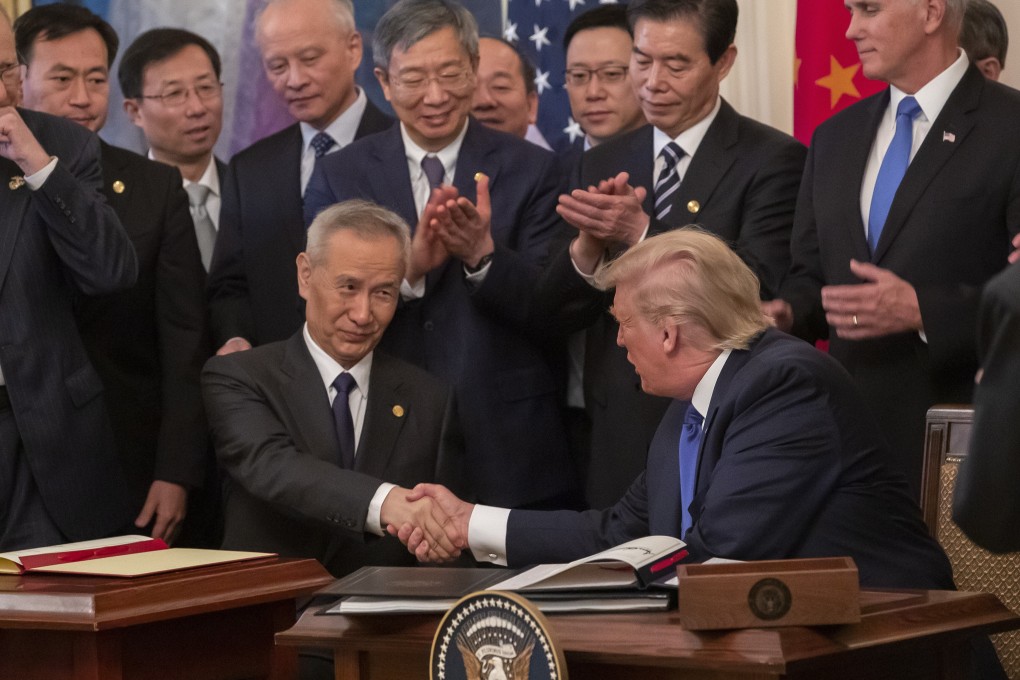Advertisement
China ‘accepts’ Joe Biden will not rush to remove Donald Trump’s US trade war tariffs, analysts say
- US President-elect Joe Biden told The New York Times this week that he will not immediately remove tariffs imposed by Trump on China
- China and the US signed the phase one trade deal in January, but tariffs remain on some US$370 billion worth of Chinese goods
3-MIN READ3-MIN
6

US President-elect Joe Biden’s decision to keep the Trump administration’s tariffs on Chinese goods for the time being is “acceptable” for China, analysts said.
China and the United States signed a phase one trade deal in January, and the US halved a tariff on US$110 billion of Chinese goods to 7.5 per cent, but 25 per cent tariff on US$250 billion worth of goods remains.
China is mentally prepared, the country has the best expectations for Biden’s China policy, but is prepared for the worst-case scenario at the same time
And in an interview with The New York Times published on Wednesday, Biden said that he will not immediately remove tariffs on China imposed by Trump when he takes office next month.
Advertisement
“From China’s perspective, it is acceptable that Biden has a period of adaptation,” said Wang Wen, executive dean of the Chongyang Institute for Financial Studies at the Renmin University of China.
“China is mentally prepared, the country has the best expectations for Biden’s China policy, but is prepared for the worst-case scenario at the same time.”
Advertisement
The US-China trade war started in July 2018, some 18 months after Trump took office, with the trade deficit with China a major political issue during the 2016 US presidential campaign.
Advertisement
Select Voice
Select Speed
1.00x